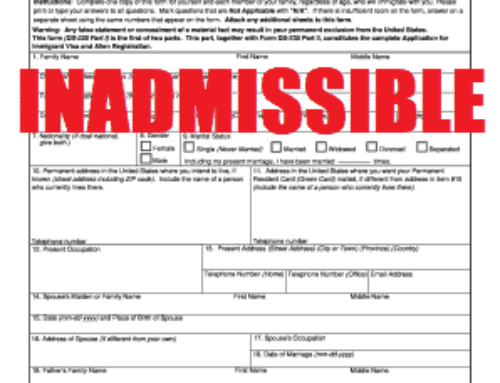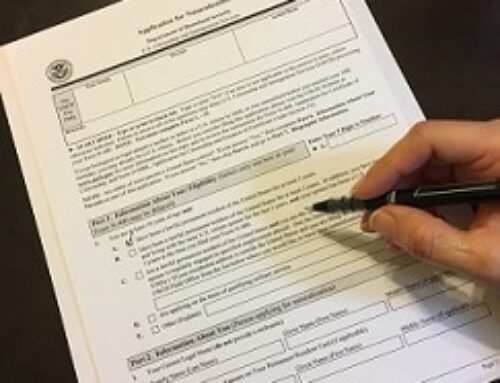In a bold and controversial move, the state of Texas has taken a decisive stance on illegal immigration, challenging the authority of the federal government. With a plan to arrest illegal migrants, the Texas governor has ignited a heated debate on the legal implications, potential consequences, and the impact on immigration policies in the United States.
This article delves into the situation in Texas regarding illegal immigration, the governor’s plan, and the arguments for and against it. It examines the concerns of civil rights groups, the response from the federal government, and the possible alternatives to Texas’ plan. We will explore the current state of immigration policies in the United States and the role of Congress in addressing this contentious issue. Join us as we unravel the complexities and implications of Texas’ approach to illegal immigration, and its far-reaching effects on immigrants, border security, and national immigration policies.
What Is the Situation in Texas Regarding Illegal Immigration?
The situation in Texas regarding illegal immigration is a complex and pressing issue that involves the influx of migrants, border control measures, and the enforcement of immigration laws, especially due to its proximity to Mexico and the involvement of the federal government.
Illegal immigration in Texas poses significant challenges to the state’s resources, including healthcare, education, and law enforcement. The constant influx of undocumented migrants strains the state’s social services and infrastructure. Not only does it impact the economy, but it also raises serious security concerns. Despite the efforts of border control measures, such as increased patrols and barriers, the volume of illegal border crossings remains a formidable issue.
The involvement of multiple entities, including the federal government, often leads to contentious debates over immigration policies, deportation procedures, and humanitarian considerations. Texas finds itself at the center of these debates, grappling with the broader implications and ethical dilemmas of illegal immigration.
What Is the Texas Governor’s Plan to Address Illegal Immigration?
Governor Greg Abbott has formulated a comprehensive plan to address illegal immigration in Texas, focusing on enhancing border security and implementing measures to curb unauthorized entry into the state.
The proposed plan includes increased deployment of law enforcement personnel to key border areas to deter illegal crossings and disrupt smuggling networks. In addition, the state will allocate resources to enhance surveillance technology, such as aerial drones and advanced monitoring systems, to augment the effectiveness of border control efforts. Governor Abbott also aims to collaborate with local law enforcement agencies and federal authorities to bolster coordination and information sharing for apprehending and processing individuals involved in illegal immigration activities.
What Are the Legal Implications of Texas’ Plan?
The legal implications of Texas’ plan to address illegal immigration are significant, involving measures such as increased law enforcement activities, potential arrests, imposition of jail time and fines, and the possibility of legal challenges from entities like the ACLU and federal judges.
These measures raise important legal questions about the limits of state authority in immigration enforcement and the potential clashes with federal law. Increased law enforcement activities could lead to a surge in arrests and legal consequences for violators, triggering debates over constitutional rights, due process, and equal protection under the law. The imposition of jail time and fines may result in legal challenges from civil rights organizations like the ACLU, who could argue that such punitive measures violate individuals’ fundamental rights and contribute to social injustice.
In addition, the involvement of federal judges is crucial, as they may be called upon to adjudicate disputes arising from Texas’ plan, especially if the legality of certain enforcement actions or penalties is contested in court. This raises the specter of prolonged legal battles and appeals, potentially culminating in decisions that shape the broader landscape of immigration enforcement and state-federal power dynamics. Furthermore, legal challenges from civil rights groups and other concerned parties could prompt federal judiciary intervention, as federal judges may be tasked with determining the constitutionality and legality of Texas’ plan, adding another layer of complexity to this contentious issue.
What Are the Arguments For and Against Texas’ Plan?
The arguments for and against Texas’ plan to address illegal immigration encompass a range of perspectives from immigration advocates, Hispanic and Black communities, and other stakeholders, reflecting diverse opinions and concerns about the proposed measures.
Among immigration advocates, the focus is on the human rights aspect, emphasizing the need to provide support and opportunities for undocumented immigrants while highlighting the benefits they bring to the society.
On the other hand, some members of the Hispanic and Black communities argue that the plan could lead to profiling and discrimination, exacerbating existing social inequalities.
Stakeholders such as law enforcement agencies express concerns about the logistical and financial burdens that may accompany such initiatives, spurring debates on the feasibility and effectiveness of the proposed measures.
What Are the Concerns of Civil Rights Groups?
The concerns of civil rights groups in Texas regarding the plan to address illegal immigration revolve around potential infringements on the rights of immigrants, legal challenges through lawsuits, and the impact on vulnerable communities within the state.
Civil rights groups and immigrant rights organizations have voiced apprehensions over the potential violations of immigrant rights stemming from the proposed policies. They argue that these measures may undermine the rights and protections guaranteed to immigrants, stirring fears of increased discrimination, detention, and deportation. There is a growing concern about the disproportionate impact on vulnerable communities, particularly as these policies could lead to social and economic instability.
What Is the Response from the Federal Government?
The response from the federal government to Texas’ plan for addressing illegal immigration involves engagements with the White House, President Joe Biden’s administration, potential legal actions in U.S. courts, and the broader implications for federal immigration policies and enforcement.
The interactions between Texas and the federal government have sparked significant debate and scrutiny. The Biden administration’s stance on immigration has influenced the approach to handling Texas’ proposals, leading to deliberations on potential legal avenues within the U.S. court system. The repercussions extend beyond the immediate policy implications, encompassing the wider landscape of federal immigration policies and enforcement mechanisms.
How Will This Affect the Immigration Debate in the United States?
The implications of Texas’ plan on illegal immigration are anticipated to significantly impact the broader immigration debate in the United States, potentially influencing legal precedents, deportation cases, and the treatment of asylum seekers, with potential implications reaching the Supreme Court.
The proposed actions by Texas, with the potential to enact stricter measures to curb illegal immigration, have the capacity to set a noteworthy precedent for other states exploring similar strategies. This could fuel a wave of legal challenges and precedents with significant ramifications on immigration policies nationwide. The plan’s focus on deportation may lead to increased scrutiny over the treatment of undocumented immigrants and the procedures governing their removal from the country.
The treatment of asylum seekers could come under heightened scrutiny, particularly considering the polarized nature of immigration policies and the ethical obligations towards those seeking refuge in the United States. These implications not only affect the affected individuals but also have the potential to shape the legal landscape and set crucial guidelines for addressing the broader asylum and immigration debate.
What Are the Possible Consequences of Texas’ Plan?
The potential consequences of Texas’ plan to address illegal immigration include increased arrest rates, potential jail time and fines for violators, and enhanced measures for bolstering border security within the state.
The increased arrest rates resulting from the implementation of this plan can lead to overburdened law enforcement agencies and court systems, potentially causing delays in processing other criminal cases. The legal penalties such as potential jail time and fines for violators may have broader social implications, impacting families and communities.
The reinforcement of border security measures may strain state resources and lead to potential confrontations along the border, raising concerns about human rights and international relations.
What Impact Will This Have on Immigrants and Their Families?
The impact of Texas’ plan on immigrants and their families is a critical concern, encompassing the risks of deportation, legal proceedings before immigration judges, and the broader ramifications for immigrant communities residing in the state.
With the potential implementation of this plan, immigrant families could face the distressing prospect of being uprooted from their homes and communities, causing significant emotional and psychological strain. The fear of deportation looms large, as individuals and families are confronted with the uncertainty of their future in the state. The legal proceedings before immigration judges add another layer of complexity, with the intricate and often daunting process of navigating the legal system.
The broader impact on immigrant communities cannot be understated, as it disrupts social and economic stability, contributes to feelings of isolation, and undermines the overall cohesion within these communities. The ripple effects could be felt across various sectors, including education, healthcare, and workforce participation, potentially hindering the progress and integration of immigrant populations.
How Will This Affect Border Security and Immigration Policies?
The implications of Texas’ plan on border security and immigration policies encompass potential roles for the National Guard, the impact on existing policy frameworks such as S.B.4, and the broader influence on state-level border control measures and immigration regulations.
In response to concerns about border security, Texas has proposed a multifaceted approach that raises important questions about the involvement of the National Guard in addressing immigration challenges. This plan may have a significant impact on legislative frameworks, including the controversial S.B.4, and could potentially shape future state-level measures aimed at controlling borders and managing immigration issues.
What Are the Alternatives to Texas’ Plan?
Alternatives to Texas’ plan for addressing illegal immigration involve proposals from advocacy groups, potential legislative actions in Congress, and the exploration of alternative strategies to manage the complexities of immigration within the state.
Advocacy groups have been putting forward comprehensive plans that emphasize pathways to citizenship for undocumented immigrants, improved working conditions, and fair treatment. Meanwhile, legislative actions within Congress could potentially encompass reforming visa programs, enhancing border security, and recalibrating asylum policies to address the challenges. Alternative strategies may include strengthening international partnerships to address root causes of migration, fostering diplomatic relations, and implementing local-level integration programs to support immigrant communities.
What Solutions Have Been Proposed by Advocacy Groups?
Advocacy groups in Texas have proposed solutions to address illegal immigration, reflecting input from Hispanic and Black communities, and focusing on comprehensive measures to mitigate the impact on vulnerable populations and promote equitable treatment within the immigration system.
These solutions include community-driven initiatives, seeking to address the specific needs and concerns of different ethnic communities affected by illegal immigration. There is emphasis on comprehensive measures, such as reforming immigration policies, strengthening border security, and enhancing pathways to legal immigration. Equitable treatment initiatives are also being put forward, aiming to ensure fair and just treatment for all individuals within the immigration system, regardless of their background.
What Is the Role of Congress in Addressing Illegal Immigration?
The role of Congress in addressing illegal immigration in Texas involves constitutional considerations, potential legislative actions, and the exploration of legal avenues to navigate the complexities of federal and state-level immigration policies and enforcement measures.
Congress holds the central responsibility of creating and passing laws that govern immigration in Texas, considering the constitutional implications of their actions. Through legislative initiatives, such as bills and resolutions, Congress has the power to shape immigration policies and provide resources for border security and immigration enforcement. Congress also plays a crucial role in overseeing the enforcement of existing immigration laws, ensuring compliance with legal procedures and due process for undocumented immigrants.
What Is the Current State of Immigration Policies in the United States?
The current state of immigration policies in the United States encompasses the actions of the Biden administration, the role of immigration judges, and potential legal precedents reaching the Supreme Court, reflecting the dynamic and evolving landscape of immigration regulations and enforcement measures.
Under the Biden administration, there has been a shift in approach, with a focus on reversing many of the previous administration’s policies and measures. This includes executive actions to address the status of undocumented immigrants, changes to asylum policies, and efforts to streamline the legal immigration system.
Immigration judges play a crucial role in adjudicating immigration cases, interpreting and applying complex laws and regulations to individual circumstances. Their decisions can significantly impact the lives of immigrants and the overall immigration landscape.
With potential legal precedents reaching the Supreme Court, the outcome of cases could have far-reaching implications, shaping the future direction of immigration policies in the United States.
Frequently Asked Questions
What is the new policy in Texas regarding illegal migrants?
Texas has recently announced plans to arrest and prosecute illegal migrants in an attempt to challenge the federal government’s immigration policies.
Why is Texas taking this action?
Texas believes that the federal government is not doing enough to enforce immigration laws and protect its borders, leading to an influx of illegal migrants into the state.
How will this affect illegal migrants in Texas?
Illegal migrants in Texas may face arrest and prosecution if they are caught by state law enforcement officials. This could potentially lead to deportation or other legal consequences.
What is the federal government’s response to this action by Texas?
The federal government has expressed concerns about the legality of Texas’ new policy and has threatened to take legal action against the state.
What are the potential consequences of this conflict between Texas and the federal government?
The conflict could potentially lead to a legal battle between Texas and the federal government, which could have far-reaching implications for immigration policies and enforcement across the country.
What can individuals do if they are affected by this policy in Texas?
If you are an illegal migrant in Texas, it is important to understand the potential consequences and to seek legal advice if you are detained or facing prosecution. It is also important to stay informed about any updates or changes to the situation.


